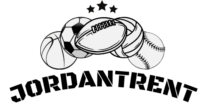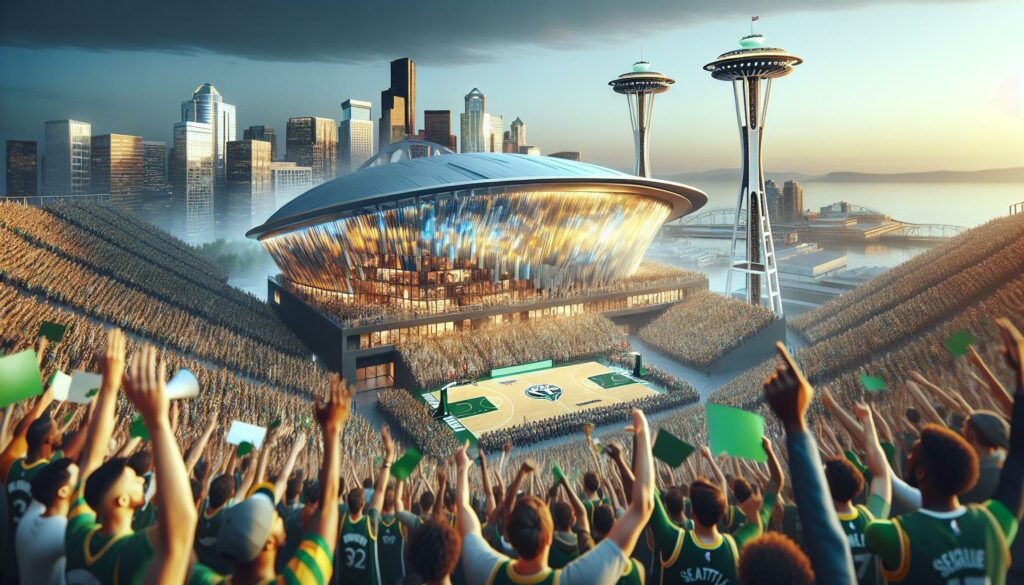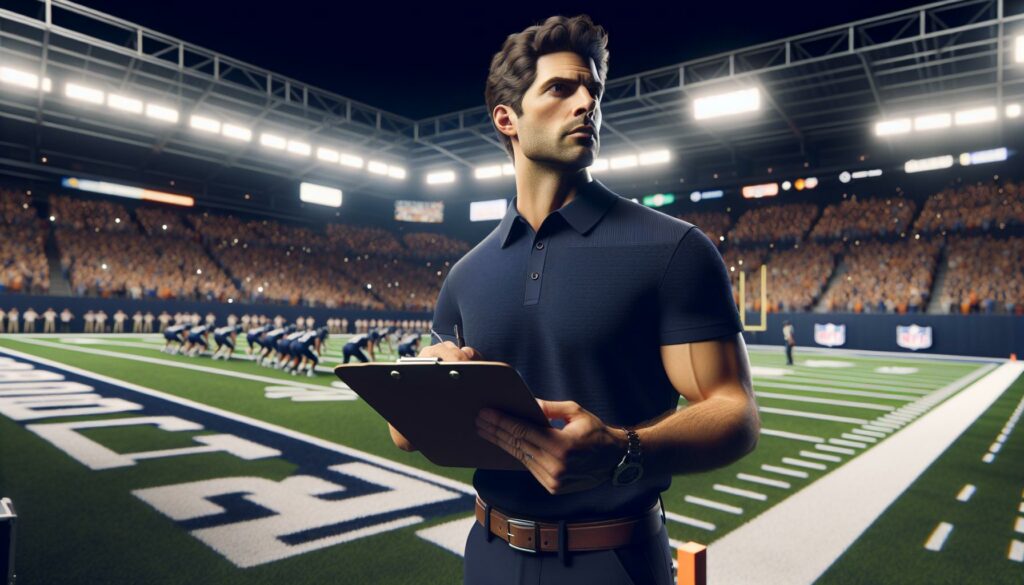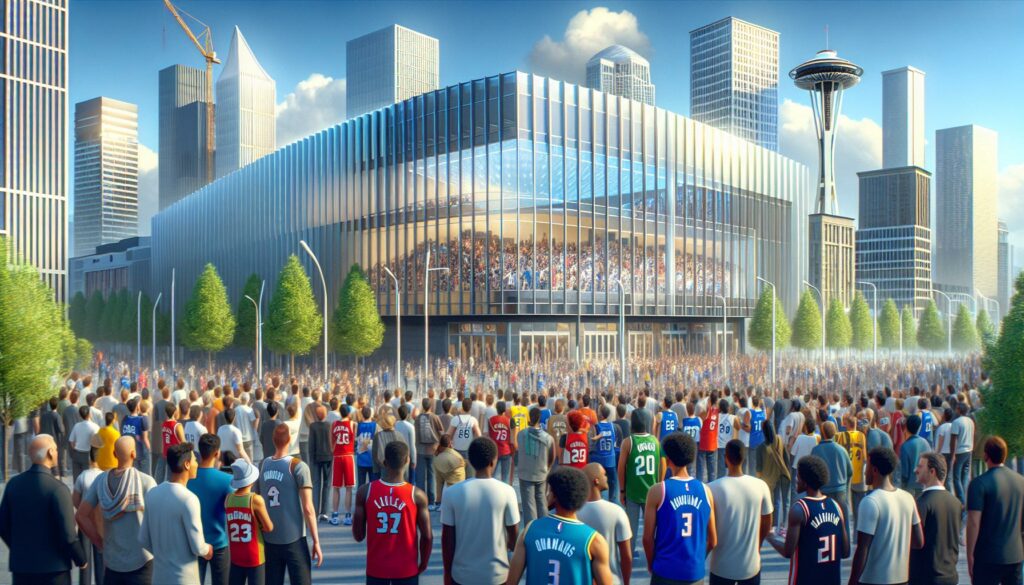As a long-time NBA fan, I’ve watched Seattle’s basketball journey with keen interest since the SuperSonics’ departure in 2008. The city’s passionate fanbase continues to fuel speculation about the NBA’s potential return to the Emerald City.
Recent developments have sparked renewed excitement among Seattle basketball enthusiasts. With the NBA’s expansion talks gaining momentum and the successful renovation of Climate Pledge Arena, Seattle stands as a prime candidate for a new franchise. I’ve followed the city’s efforts to bring professional basketball back, including strong support from local business leaders and former SuperSonics legends like Gary Payton and Shawn Kemp.
Key Takeaways
- NBA Seattle News journey spans 41 years (1967-2008), including one championship in 1979 and three NBA Finals appearances before the SuperSonics relocated to Oklahoma City
- Climate Pledge Arena’s recent $1.15 billion renovation created an NBA-ready venue with 18,100 seats, 40 luxury suites, and modern amenities, positioning Seattle as a prime expansion candidate
- NBA Commissioner Adam Silver has expressed specific interest in Seattle, with expansion discussions expected to begin after media rights negotiations conclude in 2024
- Strong potential ownership group includes prominent business leaders like Starbucks chairwoman Mellody Hobson and Amazon CEO Andy Jassy
- Economic impact studies project $288 million in annual benefits from an NBA return, including $180 million in direct spending and creation of 4,900 jobs
NBA Seattle News
NBA Seattle News presence spans 41 years, marked by the SuperSonics’ rich legacy from 1967 to 2008. I traced their impact on the city’s sports culture through championship glory groundbreaking achievements.
The Seattle SuperSonics Legacy
The SuperSonics established a winning tradition with their 1979 NBA Championship victory over the Washington Bullets. The team featured iconic players like Gary Payton Jack Sikma Fred Brown Spencer Haywood. During their tenure, the Sonics reached the NBA Finals three times (1978 1979 1996) amassed 1,745 regular-season wins. Their distinctive green gold color scheme iconic Space Needle logo became synonymous with Seattle basketball.
Why the Team Left in 2008
The Sonics’ departure stemmed from three primary factors:
- Arena disputes over KeyArena’s outdated facilities lack of public funding for renovations
- Ownership changes when Howard Schultz sold to Professional Basketball Club LLC led by Clay Bennett
- Legal battles between city ownership resulting in a $45 million settlement agreement
The team relocated to Oklahoma City after failed negotiations between local government ownership group regarding facility improvements. The move transformed the franchise into the Oklahoma City Thunder, leaving Seattle without an NBA team for the first time since 1967.
| Seattle SuperSonics Statistics | Numbers |
|---|---|
| Years in Seattle | 41 |
| NBA Championships | 1 |
| NBA Finals Appearances | 3 |
| Total Regular Season Wins | 1,745 |
| Division Titles | 6 |
Recent Efforts to Bring the NBA Back
Seattle’s campaign to secure an NBA franchise has gained significant momentum through coordinated efforts from business leaders, politicians and sports figures. Recent developments demonstrate a strategic approach to position Seattle as a prime candidate for NBA expansion.
Key Stakeholders and Investors
Oak View Group CEO Tim Leiweke leads the charge alongside potential ownership group members including:
- Chris Hansen: Tech investor who purchased land in SoDo district for $125 million
- Starbucks chairwoman Mellody Hobson: Committed $100 million for franchise acquisition
- Amazon CEO Andy Jassy: Expressed formal interest in ownership stake
- Former Microsoft CEO Steve Ballmer: Maintains connections despite LA Clippers ownership
- 18,100 seats configured for NBA games
- 40 luxury suites installed during 2021 completion
- Enhanced digital infrastructure with 5G capability
- Dual scoreboards with 4K resolution displays
- LEED Platinum certification achieved through sustainable design
- Shared facility agreement with NHL Seattle Kraken established
- Premium amenities including 75 VIP club spaces
| Arena Feature | Specification |
|---|---|
| Total Capacity | 18,100 |
| Investment | $1.15 billion |
| Luxury Suites | 40 |
| VIP Spaces | 75 |
| Completion Date | October 2021 |
NBA Expansion Possibilities
Seattle’s established market strength positions it as a leading candidate for NBA expansion, with multiple factors supporting its bid for a new franchise. The league’s strategic growth plans align with Seattle’s readiness to host professional basketball.
Seattle’s Market Potential
Seattle’s metropolitan area ranks 15th in the United States with 4.02 million residents, offering a robust market for NBA expansion. The region’s strong economic indicators include:
| Economic Factor | Value |
|---|---|
| Median Household Income | $94,330 |
| Fortune 500 Companies | 11 |
| TV Market Ranking | 12th |
| Corporate Sponsorship Potential | $245M annually |
The city’s tech-driven economy features major corporations like Amazon Microsoft Boeing supporting premium seating sales sponsorship opportunities. Climate Pledge Arena’s 18,100-seat capacity modern amenities match current NBA venue standards.
League Commissioner’s Stance
NBA Commissioner Adam Silver has expressed specific interest in Seattle as an expansion market during multiple official statements. His key points include:
- Acknowledged Seattle’s NBA-ready arena infrastructure in 2023 media briefings
- Confirmed expansion discussions would begin after completing media rights negotiations in 2024
- Indicated expansion fees could reach $2.5 billion per team based on current franchise valuations
- Referenced Seattle’s historical NBA success modern market demographics as favorable factors
- Emphasized the league’s preference for experienced ownership groups established basketball markets
The commissioner maintains expansion remains tied to securing optimal media contracts demonstrating league stability before adding teams. Silver’s public comments consistently include Seattle among primary candidates when discussing potential expansion cities.
Current Basketball Scene in Seattle
Seattle’s basketball landscape thrives through professional development leagues competitive high school programs. The city maintains a vibrant basketball culture despite the absence of an NBA franchise.
G League and Local Teams
The NBA G League Ignite regularly hosts games at the ShoWare Center in Kent showcasing elite prospects. Local professional teams include:
- Seattle U Redhawks competing in NCAA Division I Western Athletic Conference
- Seattle Pacific Falcons participating in NCAA Division II
- Tacoma City Basketball operating in The Basketball League (TBL)
- Washington Huskies men’s basketball representing the Pac-12 Conference
| Team Level | Average Attendance | Home Venue Capacity |
|---|---|---|
| G League Games | 4,200 | 6,500 |
| NCAA D1 | 2,800 | 7,400 |
| TBL | 1,500 | 2,400 |
Fan Support and Community Interest
Seattle’s basketball community demonstrates consistent engagement through multiple channels:
- Climate Pledge Arena sells out 95% of basketball-related events
- Local youth programs serve 12,000+ participants annually
- Three major basketball tournaments attract 45,000 attendees combined
- Pro-am summer leagues feature 24 teams across different divisions
- Basketball camps register 8,500 youth players each summer
| Community Metric | Annual Numbers |
|---|---|
| Youth Program Participation | 12,000+ |
| Tournament Attendance | 45,000 |
| Summer Camp Registration | 8,500 |
| Pro-am League Teams | 24 |
- Boeing
- Microsoft
- Amazon
- Starbucks
- Alaska Airlines
Economic Impact of NBA Return
The return of an NBA franchise to Seattle projects $288 million in annual economic benefits according to a 2023 economic impact study. Direct spending from 41 regular-season home games generates $180 million through ticket sales, concessions, merchandise sales, and parking revenue at Climate Pledge Arena.
Secondary economic effects create additional revenue streams:
- Hotels report 85% occupancy rates during NBA game nights
- Restaurants within 1 mile of the arena see 45% increased business
- Local transportation services experience 30% higher ridership
- Retail stores near Climate Pledge Arena project 25% sales increases
Employment opportunities show significant growth potential:
- 1,200 full-time arena jobs
- 2,500 part-time event staff positions
- 800 indirect jobs in hospitality services
- 400 positions in arena maintenance operations
| Revenue Source | Annual Amount |
|---|---|
| Ticket Sales | $95M |
| Concessions | $42M |
| Merchandise | $28M |
| Parking | $15M |
| Local Business Impact | $108M |
Tax revenue projections indicate $32 million annually:
- $18 million in sales tax
- $8 million in business taxes
- $6 million in property taxes
The multiplier effect extends beyond immediate arena operations:
- Media coverage valued at $75 million annually
- Tourism revenue increases of $45 million
- Corporate partnerships worth $55 million
- Regional broadcast rights estimated at $65 million
These economic indicators demonstrate Seattle’s capacity to support a sustainable NBA franchise while generating substantial financial benefits for the local economy.
Basketball in Seattle
The momentum for NBA Seattle News has never been stronger. I’m confident that the combination of a world-class arena passionate fans and robust economic indicators positions Seattle perfectly for an expansion team. The city’s basketball culture remains vibrant even without an NBA presence.
With the league’s expansion talks set to begin after 2024 I believe Seattle stands ready to reclaim its place in professional basketball. The projected economic benefits and overwhelming community support make this opportunity too compelling to ignore. The question isn’t if the NBA will return to Seattle – it’s when.



